
LORD, HAVE MERCY
The Healing Power of Confession
SCOTT HAHN

To Gabriel Kirk Hahn:
Omnia in bonum (Rom 8:28)
CONTENTS
CHAPTER 1
GETTING OUR STORIES STRAIGHT
CONFESSION is a mixed-up matter for many Catholics. The more we need it, the less we seem to want it. The more we choose to sin, the less we want to discuss our sins.
It's only natural, this reluctance to speak up about our moral failures. If you're the losing pitcher in the final game of the World Series, you're not going to seek out the sports- writers on your way to the locker room. If your mismanagement of the family business has driven most of your kin to bankruptcy court, you probably won't volunteer that information at a cocktail party.
Sin, moreover, is the one thing in life we should be ashamed about. For sin is a transgression against almighty God, which is a more serious matter than a business blunder or a fat pitch down the middle of the plate. When we sin, we reject the love of God, to some degree, and nothing can be hid from God.
Raised from the Dread
So, again, it's only natural for us to wince at the very thought of kneeling before God's representatives on earth, his priests, and of speaking our sins aloudin clear terms, without whitewash, without excuses. Self-accusation has never been humanity's favorite pastime. Yet it's essential to every confession.
To dread confession is only natural, yes, but nothing that's "only natural" can get us to heaven, or even win us happiness here on earth. Heaven is supernatural; it's above the natural, and every natural happiness is fleeting. Our natural instincts tell us to avoid pain and embrace pleasure, but the wisdom of the ages tells us things like "No pain, no gain."
Whatever we suffer from speaking our sins aloud, it's far less than the pain we bring on ourselves by living in inward or outward denial, acting as if our sins don't exist or don't matter. "If we say we are without sin," the Bible tells us, "we deceive ourselves" (1 Jn 1:8).
Self-deception is a nasty thing in itself, but it's only the beginning of our troubles. For when we begin to deny our sins, we begin to live a lie. In our speech or in our thought, we have broken important connections of cause and effect, because we have denied our own responsibility for our own most grievous faults. Once we've done this, even in a small matter, we have begun to erode the contours of reality. We can't quite get our story straight, and this can't help but affect our lives, our health, and our relationshipsmost directly and most profoundly, our relationship with God.
That's a big claim, I know, and some people might think I'm exaggerating. The rest of the book, I pray, will bear this lesson out. It's a lesson I began to learn, the hard way, long before I believed in God or saw a confessional.
Pittsburgh Stealer
I have a confession to make. In my early teens, I ran with the sort of crowd that is every parent's nightmare. We did some minor mischief before moving on to petty crime. For a while, shoplifting at the mall was our Saturday afternoon pastime. One day, I got caught stealing record albums. I won't tire you with the details just now. I'll only say that I was more skillful as a liar than as a thief.
Two store detectives, both middle-aged women, hauled me off to the department store's interrogation room. I must have looked pitiful. I was the smallest kid in my eighth-grade class. I was thirteen, but I looked about ten. One of the detectives looked at me and said, "You look too young to steal.... Did you steal those albums for yourself?"
She didn't know it, but with those words she had given me my alibi. Working from her mere suggestion, I fabricated a story about how a group of local kidsknown delinquents and drug usersthreatened to beat up my friend and me unless we stole albums for them.
The interrogator's face flushed with a motherly indignation. "How could they do such a thing? Why didn't you tell your mom?"
"I was afraid," I said meekly.
A Pittsburgh police officer soon arrived, and in short order I managedwith the store detectives' help!to persuade them that the real guilt lay elsewhere than with me. The police, in turn, helped me to make the case convincingly for my mother.
Scott-Free
Soon I was, literally, home-free. When Mom parked the car in our driveway, I mumbled something about being tired. She was sympathetic. I went directly to my room and closed the door.
Immediately I heard muffled conversation from downstairs. I couldn't make out words, but I knew that the soft voice was my mother's and that the voice gradually rising in volume and pitch was my dad's. This didn't bode well.
Soon the sound of heavy feet came padding up the steps and then down the hall to my room. I felt more than heard the knock at the door.
It was Dad, of course, and I let him in.
He fixed his eyes on mine, which immediately shifted to a distant point on the carpet.
"Your mother told me what happened today."
I nodded.
He kept staring at me. "You were made to steal those record albums?"
"Yeah."
He looked at me hard and repeated, "You were made to steal records?"
As I nodded again in reply, I could see his eyes shift toward the towering stack of records beside my stereo.
He looked back toward me. "And where'd you drop the records off, after you stole them?"
"At a tree stump," I replied, "in the woods near the mall."
"Can you show me that tree stump?"
I nodded again.
"Okay," he said. "Get on your coat, Scottie. Let's go for a walk."
Forest Clump
The woods were about three hundred yards from our house, and the mall was about a half-mile walk through the woods. The foliage was thick, so I was sure I'd see lots of tree stumps. All I'd have to do is choose one.
Sure enough, as we walked, I saw plenty of trees, plenty of leaves, plenty of twigs, even some fallen branchesbut a conspicuous absence of stumps. My dad had let me lead, so he couldn't see my eyes scanning from side to side, with increasing desperation. I felt a certain panic when I saw the clearing ahead. The woods were ending, and I hadn't seen a stump.
At the very edge of the woods, with the mall straight in front of us, I said, "Over there. That's where the guys were sniffing glue."
"OK," Dad replied, "where's the stump?"
"It's that big mound of dirt over there. That clump."
He looked right back at me. "You said tree stump."
I squirmed. "Well, clump, stump..."
"Clump... stump," he repeated, pausing painfully between the words. I was expecting his temper to explode, for him to turn around in a rage and call me a liarbut all he said was, "Let's go home."
In the eternity it took us to walk through the woods, my father never said a word. I found myself no longer dreading the explosion, but almost longing for it. His silence was killing me.
We got home. He closed the door. He took off his jacket, took off his shoes, went upstairs.
In a moment, I, too, went upstairs, into my room alone, and closed my door. You'd think that I'd be celebrating a victory. I had managed to keep my crooked story straight enough to fool two store detectives, a town policeman, and my mother! But I was celebrating nothing. I was experiencing a whole new thing. It was at that moment that I began to realize what it meant to have a human heart. I felt such an overwhelming sense of shame because my dad didn't believe my story, because he knew the boy he loved had lied and stolen.
Next page
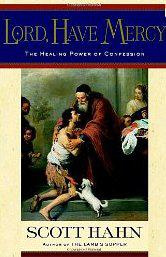
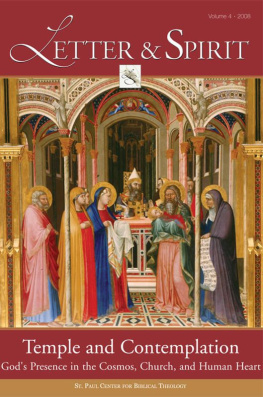
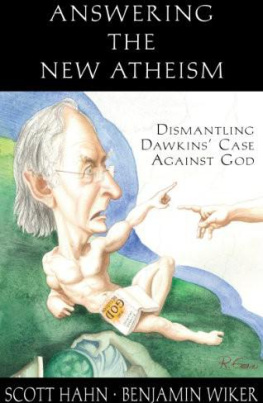
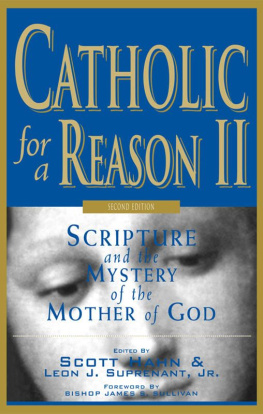
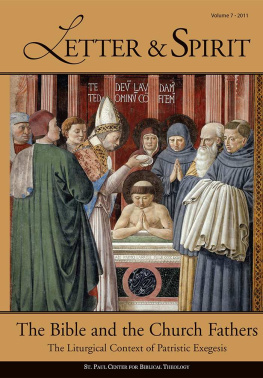
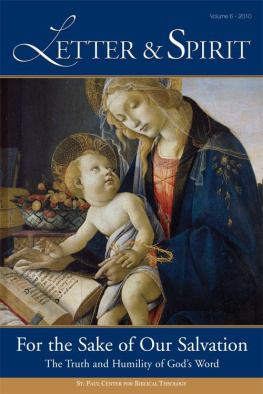
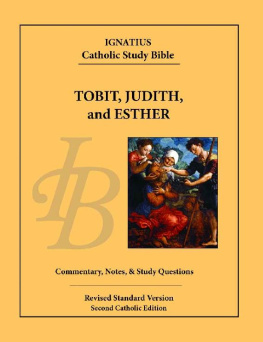



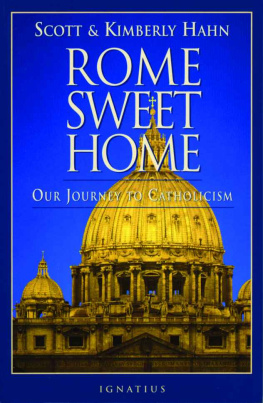
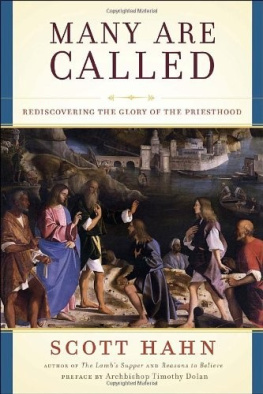
![Scott Hahn [Inconnu(e)] - Lord, Have Mercy: The Healing Power of Confession](/uploads/posts/book/134756/thumbs/scott-hahn-inconnu-e-lord-have-mercy-the.jpg)
![Scott Hahn [Inconnu(e)] - A Father Who Keeps His Promise: God’s Covenant Love in Scripture](/uploads/posts/book/134748/thumbs/scott-hahn-inconnu-e-a-father-who-keeps-his.jpg)

